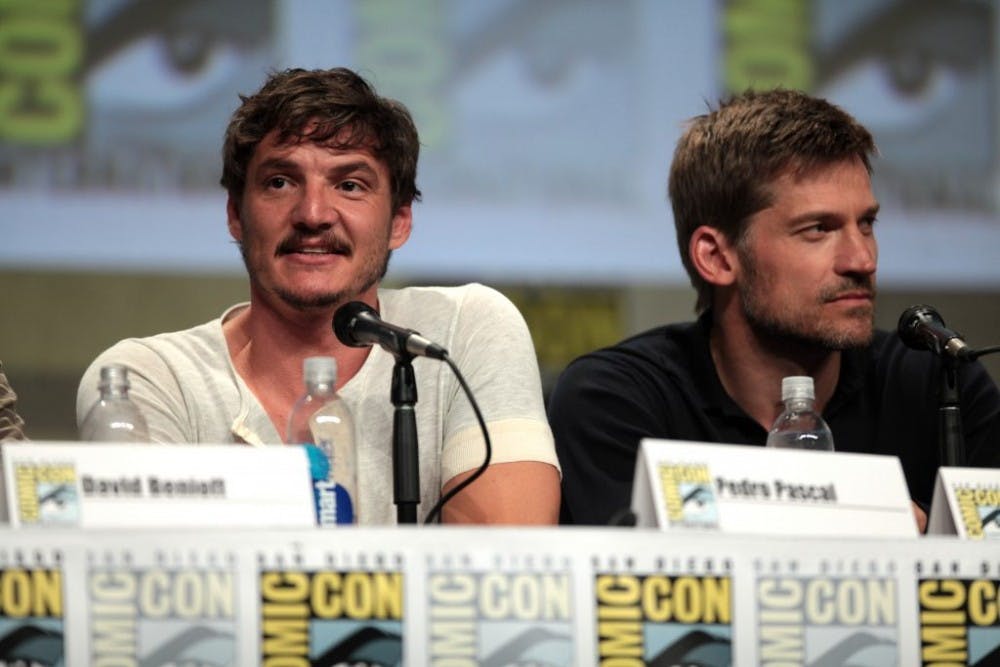Perhaps a quick preface: drugs aren’t cool–mostly– and it would be difficult to argue that cocaine, the esteemed schedule I narcotic, has offered anything positive to the human race. However, its nefarious trade makes for great cinematic context, as the creators of the Netflix original series Narcos have shown their many avid viewers. The show’s first season was met with largely positive reviews and drew a following amongst Netlfix users. Riding that wave of success, creators Chris Brancato, Carlo Bernard and Doug Miro released the second season of the show Sept. 2.
The show’s second season presented the writer’s with a dilemma; Pablo Escobar’s fate is historical fact and one that is hardly uncommon knowledge. So, how does one create a suspenseful drama out of a story with a fixed and unchangeable ending? Narcos has answered that question with its newest season. While the first season, released in August 2015, focused on the rise of Escobar from smuggler to multi-national drug lord, the second turns its attention to his downfall. Appropriately, the stories of DEA agents Steve Murphy, played by Boyd Holbrook, and Javier Peña, played by Pedro Pascall–along with their law enforcement allies–take center stage.
The viewer follows Murphy and Peña as the search for Escobar escalates into a ruthless hunt. As the two men take center stage, their characters are permitted far more growth. Each faces their own ethical dilemmas, as crime fighting becomes more and more criminal.
Murphy’s personal obsession with Escobar breaks down some moral walls while creating a divide in his family life. Peña seeks to expand his hunt beyond the bounds of the law, foolishly making a deal with one of the many devils. Confronted with these new conflicts, Holbrook and Pascal both shine, transforming their characters from somewhat cut-and-dry good guys to troubled and sympathetic heroes with a shade of anti.
Escobar, portrayed by Brazilian actor Wagner Moura, is pushed to the side somewhat in favor of the other characters around him. This makes sense; all of season one was spent creating the character of Pablo Escobar and by now, viewers are familiar. Plus, you can only go so far into the personality of a ruthless drug dealer until you hit rock bottom.
Moura’s performance is as strong as ever and he still seizes most of the screen-time, but one sees a change in Paulina Gaitán’s portrayal of Pablo’s wife, Tata. In the first season, Tata wasn’t much more than a willingly naive romantic companion, but now that Pablo’s fortunes have soured and her family is at risk, she comes into her own as a forceful guardian.
New players, both cop and robber, join the game in the second season. Most notable are the pair of shadowy brothers at the head of the Cali Cartel, which is in competition with Escobar’s quickly collapsing Medellin cartel. Alongside Cali stands drug empress Judy Moncada and hardline right-wing guerrillas the Castaño brothers. All these criminal newcomers are roughly as sympathy-worthy as cancerous cells, but they make for good adversaries.
Visually, the show improves from the first season. There are more chases, tense moments in confined spaces and scenes that radiate thinly disguised fear. The actors too have changed their appearances to reflect their entrance into the final act. Pablo gets fatter and fatter as the season progresses; Murphy and Peña are more haggard; Tata’s mannerisms grow all the more anxious and fearful.
Despite the deft writing, there are certain times where the season feels a little drawn out, but it would be hard to fault any creative mind behind the show for that. To compress Pablo Escobar’s entire rise and fall into one short season of television show would be idiotic. However, creating an entertaining story with a predetermined ending is challenging. It seems, though, that those behind the scenes of Narcos have been successful. They have offered some of the tertiary characters more growth, introduced new protagonists and antagonists and changed the tone from the exhilarating optimism that marked Escobar’s rise to the Shakespearian tragedy that is his downfall. Just like any Shakespearian tragedy, the new season is fraught with treachery, brutal violence, sex and hubris. And, naturally, face-numbing amounts of cocaine.





